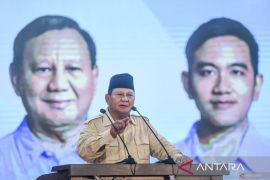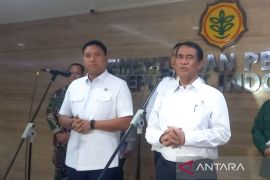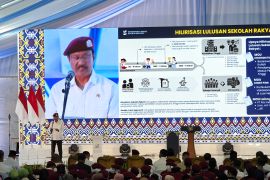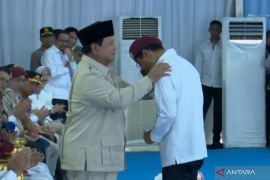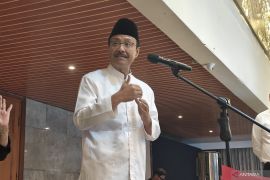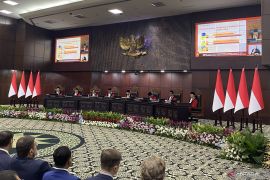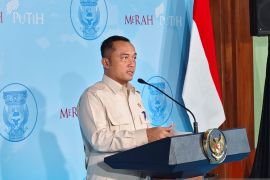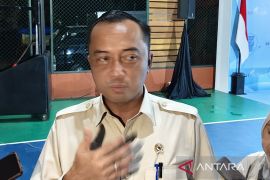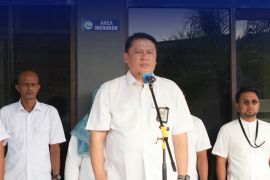Freddy Harris, the Director General of General Law Administration of the Law and Human Right Ministry, read out the announcement at the office of the Immigration Directorate General here on Wednesday .
Freddy Harris said the Law and Human Right Ministry has the legal authority in validating associations or mass organizations.
Under public institution administration, mass organizations meeting the requirements and follow the administrative procedure would be given a legal status (SK) as a corporate body, he said.
On the contrary associations/mass organizations failing to meet the administrative requirements would not be given the SK, he said.
The cancellation of the SK of HTI, followed the issuance of the government regulation in lieu of law (Perppu) No 2 of 2017, Freddy Harris said.
He said the decision to revoke the SK by the government is effective as from July 19, adding the government regulates measure and sanction against mass organizations through the Perppu No. 2 of 2017.
Firm measures would be taken against mass organizations committing activities not in line with the state ideology Pancasila and the law on the Unitary State of the Republic of Indonesia (NKRI).
The government said the revocation of the SK of HTI is not a unilateral decision, but it is a result of synergy between related agencies in the fields of politics, law and security, Freddy said.
Freddy Harris said the government guarantees freedom to associate and to express opinions, but the associations /mass organization have to comply with the law regulations.
"They must not contradict the state ideology and law," he said.
He said under the Perppu No 2 of 2017 , the government has the obligation not only to develop association/mass organizations , but also to facilitate reports from the people in the event of indications of association/mass organizations deviating from the state ideology and law.
Freddy Harris said HTI has been against Pancasila and NKRI in its activities although it includes Pancasila and NKRI in its statute (AD/ART).
"They acted contrary to their own AD/ART," he said.
Those having objection to the decision could take legal channel, he said.
The Perppu has drawn strong reactions from a number of politicians and law experts saying Jokowi (President Joko Widodo) "has taken a fatal step leading the country to a dark era."
Strong criticism came from outspoken deputy house speaker Fahri Hamzah and leading lawyer Yusril Ihza Mahendra.
Fahri Hamzah said Jokowi did not understand the spirit behind the emergence of the Law on Mass Organization, which was replaced by the President with Perppu No. 2 of 2017.
Fahri said the Law No. 17 of 2013 was issued to prevent the return to authoritarian government of New Order, which was repressive and against freedom to express opinions.
He said the Jokowi regime did not understand the spirit of reformation, adding, "This is the most fatal. Jokowi wants to bring back the nation to the authoritarian era before the reformation."
He said he would fight to the death against Perppu that it would not be passed into law as it is a treachery to the reformation.
Meanwhile HTIs lawyer Yusril said that HTI is no longer the only target of the Perppu, but it could be used against other mass organizations.
The Perpu has been favored by the majority of the countrys lawmakers .
Vice President Jusuf Kalla said the Perppu is effective even if the House of Representatives (DPR) has not given its approval.
"Legally it is effective once it is announced and it would be effective until the DPR decides otherwise," Kalla said earlier.
A mass organization in Indonesia is required to adopt the four pillars of the nation - Pancasila, Unitary State of Republic of Indonesia (NKRI), the 1945 Constitution and Bhinneka Tunggal Ika (Unity in Diversity). (*)
Editor: Heru Purwanto
Copyright © ANTARA 2017
